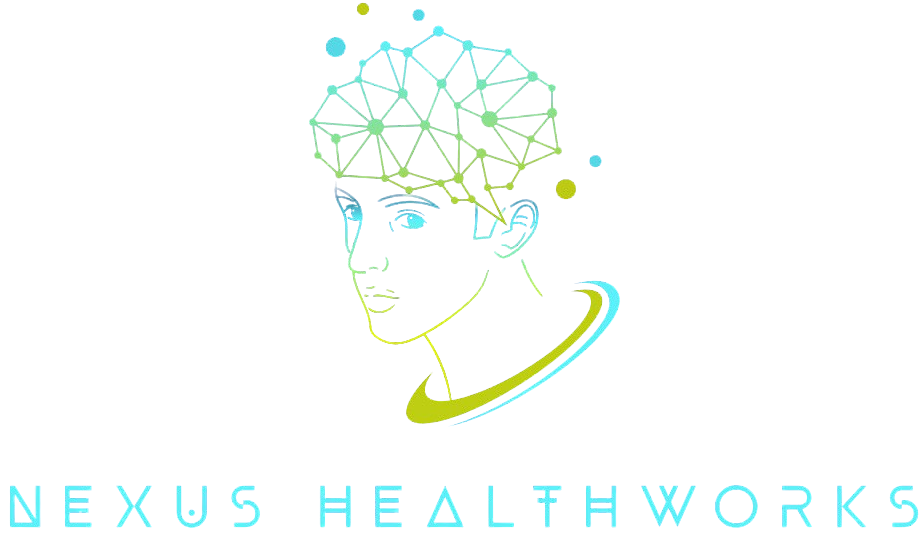Chronic mental illnesses are long-lasting mental health conditions that require ongoing management and support. These disorders often include conditions like schizophrenia, bipolar disorder, severe depression, and schizoaffective disorder. While challenging, chronic mental illnesses are manageable with the right treatment plan, enabling individuals to lead meaningful and productive lives.
At Nexus Healthworks NP in Psychiatry P.C., we provide tailored care for children aged six and older, adolescents, and adults facing chronic mental illnesses. By integrating psychotherapy, medication management, and holistic strategies, we aim to help patients achieve stability and improve their quality of life.
Symptoms of Chronic Mental Illness
The symptoms of chronic mental illness vary based on the condition but often include a combination of emotional, cognitive, and behavioral challenges. Common signs include:
- Persistent sadness, anxiety, or emotional instability.
- Delusions, hallucinations, or distorted thinking.
- Difficulty maintaining relationships or social connections.
- Impaired ability to concentrate or make decisions.
- Disorganized behavior or speech patterns.
- Loss of interest in daily activities or personal care.
- Sleep disturbances, including insomnia or excessive sleep.
- Physical complaints, such as unexplained fatigue or aches.
- Thoughts of self-harm or suicidal ideation.
These symptoms often disrupt daily life and require professional care to manage effectively.
Why Addressing Chronic Mental Illness Is Essential
Chronic mental illnesses can profoundly affect an individual’s mental, physical, and social well-being. Seeking treatment is vital because:
- Untreated conditions can worsen over time, leading to increased severity of symptoms and greater difficulty managing daily life.
- Chronic mental illnesses often coexist with physical health issues, such as heart disease or diabetes, creating additional challenges.
- Without treatment, individuals may experience isolation, financial strain, and difficulties maintaining employment or education.
- Early and consistent care helps reduce the frequency and intensity of episodes, enabling individuals to regain control of their lives.
- Professional support fosters self-awareness and equips patients with strategies to navigate the complexities of their condition.
- Comprehensive treatment improves overall well-being, enabling individuals to achieve stability and maintain independence.
Our Approach to Managing Chronic Mental Illness
At Nexus Healthworks NP in Psychiatry P.C., we provide evidence-based and compassionate care for chronic mental illnesses. Our treatment process is designed to address each patient’s unique needs.
Steps in the Treatment Process
- Comprehensive Assessment and Diagnosis: Our care begins with a thorough evaluation to identify the specific mental health condition and any co-occurring challenges.
- Development of a Personalized Treatment Plan: We create individualized care plans that may include therapy, medication, and recommendations for lifestyle adjustments.
- Psychotherapy for Emotional Support and Skill Building: Techniques such as cognitive-behavioral therapy (CBT) or dialectical behavior therapy (DBT) help patients develop coping strategies and improve emotional resilience.
- Medication Management: Medications, such as antipsychotics, antidepressants, or mood stabilizers, are carefully prescribed and monitored to manage symptoms effectively.
- Incorporating Holistic Strategies: Encouraging mindfulness practices, regular exercise, and a balanced diet complements clinical treatments.
- Ongoing Monitoring and Adjustment: Regular follow-ups ensure the treatment plan remains effective and adapts to the patient’s progress and evolving needs.
Proactive Steps for Managing Chronic Mental Illness
Managing chronic mental illness requires a proactive and collaborative approach. Key strategies include:
- Adhering to Treatment Plans: Consistency with therapy and medications is essential for symptom management.
- Developing Healthy Routines: Regular sleep, physical activity, and proper nutrition promote overall wellness.
- Engaging in Therapy Continuously: Long-term therapy strengthens coping skills and provides emotional support.
- Building a Support System: Family, friends, and support groups offer encouragement and understanding.
- Recognizing Early Signs of Relapse: Identifying triggers or changes in mood allows for timely intervention.
- Practicing Stress Management: Mindfulness, relaxation techniques, and hobbies help reduce stress and improve emotional balance.
Achieving Stability and Fulfillment Through Effective Care
With appropriate care, individuals living with chronic mental illnesses can experience significant improvements in their overall quality of life. Patients who actively engage in treatment often report a noticeable reduction in the severity and frequency of episodes, enabling them to regain control. Many find an enhanced ability to manage daily responsibilities and maintain independence, fostering confidence and self-reliance. Relationships with loved ones frequently improve as communication and understanding deepen. Emotional stability and resilience grow, empowering individuals to navigate challenges more easily.
Furthermore, treatment helps patients rediscover confidence in pursuing personal and professional goals, creating a renewed sense of motivation and accomplishment. Despite the challenges posed by their condition, many individuals uncover a profound sense of purpose and fulfillment through consistent care. Effective treatment not only alleviates symptoms but also equips individuals with the tools to take control of their mental health and work toward a brighter, more stable future.
Frequently Asked Questions
What causes chronic mental illness?
A combination of genetic, biological, and environmental factors often causes chronic mental illnesses. Stressful events can also play a role in triggering symptoms.
Can children develop chronic mental illnesses?
Yes, chronic mental illnesses can occur in children. Early diagnosis and intervention are critical for long-term management and improved outcomes.
Are chronic mental illnesses curable?
While chronic mental illnesses are typically lifelong conditions, their symptoms can be effectively managed with consistent treatment and support.
Do all individuals with chronic mental illness require medication?
Not always. Some individuals benefit from therapy alone, but medication is often necessary for managing moderate to severe symptoms.
How long does treatment for chronic mental illness last?
The duration of treatment varies, but many patients require long-term or lifelong care to maintain stability and prevent relapse.
Moving Forward with Expert Care
Living with chronic mental illness can be challenging, but with the right treatment, stability and fulfillment are within reach. At Nexus Healthworks NP in Psychiatry P.C., we are committed to providing compassionate, personalized care for individuals of all ages. If you or a loved one is living with a chronic mental illness, don’t hesitate to seek help. Contact Nexus Healthworks NP in Psychiatry P.C. today to learn how we can support you on your journey to wellness. Together, we can create a plan for a brighter and more stable future.




